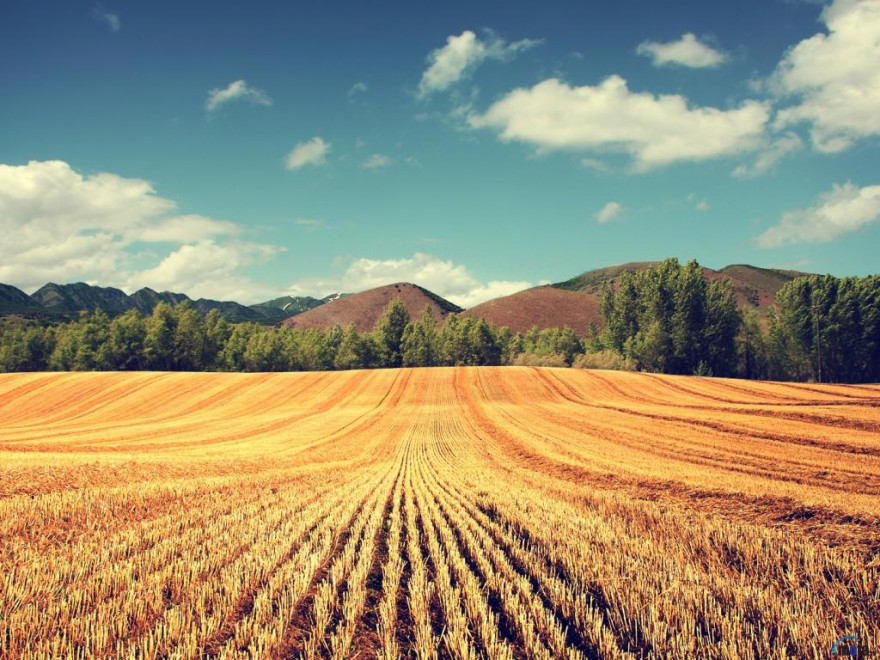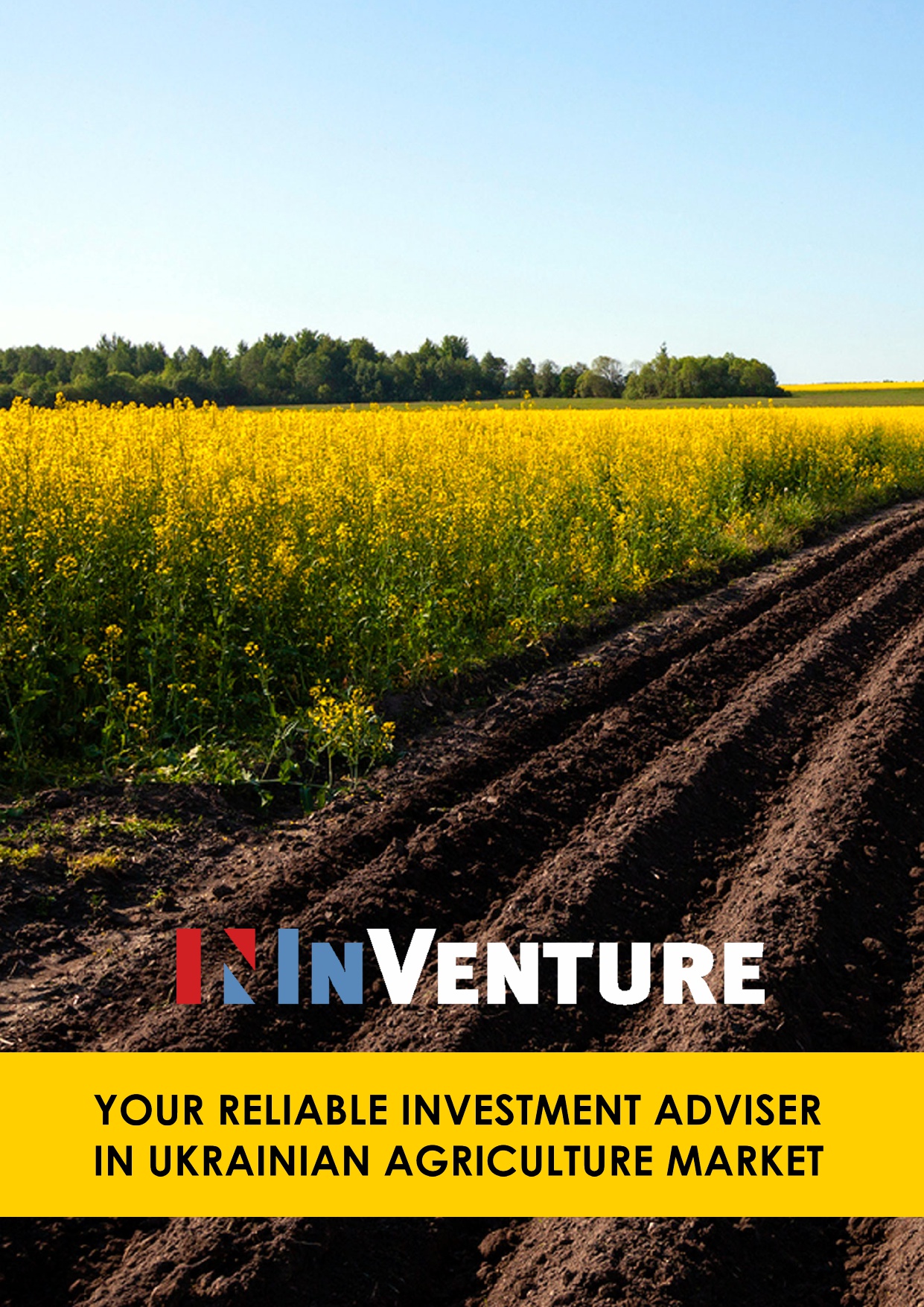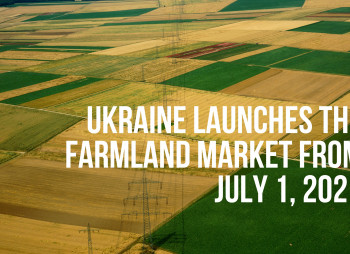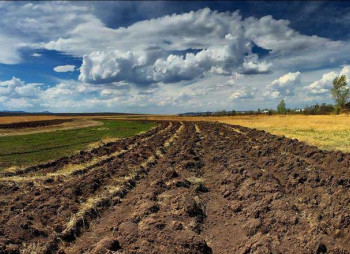On March 31, 2020, the Verkhovna Rada finally approved the new Law “On Amendments to Certain Laws of Ukraine on the Conditions of Turnover of Agricultural Land” (hereinafter, “Law 552-IX”), which comes into effect on July 1, 2021. The law eases a century-old ban on the sale of certain types of agricultural land, though with numerous limitations as specified below.
As a reminder, the current form of the moratorium on the sale of certain types of agricultural land was implemented in Ukraine in 2001, at first imposed for 4 years and later extended and modified several times. That moratorium remained in effect on the day this blog post was written.
Before that, between 1917 and 1992, most of which time Ukraine was part of the Soviet Union, private ownership of land was not allowed. In 1992, following Ukraine’s Independence the previous year, the Ukrainian Government began a process of land privatization while at the same time imposing numerous limitations on the sale of land.
Under the current law and until July 2021:
1. Ukrainian citizens can own any type of land. Citizens of Ukraine can obtain ownership in one of the following ways:
- gaining ownership through privatization for free (up to a certain number of hectares for each type of land use);
- assignment of a plot of land in exchange for land shares (earlier received by such individual upon the liquidation of a collective farm);
- inheritance;
- buying or acquiring ownership in another way (except for “land under moratorium” as listed below);
2. Ukrainian companies. Companies registered in Ukraine that are owned by Ukrainian citizens OR other Ukrainian companies can obtain ownership in one of the following ways:
- receive land as a contribution to share capital (except “land under moratorium” as listed below);
- inheritance;
- buy/acquire ownership in other ways (except “land under moratorium” as listed below).
3.Land “under moratorium” (which covers about 96% of all agricultural land in Ukraine) is subject to the following limitations:
- A ban on the sale of state and municipal agricultural land;
- A ban on the sale, mortgage, alienation in other way and amend the designated use for lands that have a designated use*:
- “commercial agriculture”; and
- “personal agricultural production,” for land that was earlier allocated to owners of land shares in kind
- A ban on the sale/alienation (voluntary transfer) of land shares;
- A ban on inclusion of land shares in the share capital of legal entities;
As an exception, land “under moratorium” can be inherited OR exchanged subject to certain conditions.
*Designated use is mentioned in the State Land Cadaster and title documents for a particular plot of land.
Note that agricultural land which has designated uses other than those specified above as “under moratorium” can be freely sold and mortgaged to citizens of Ukraine and to Ukrainain companies.
The moratorium does not apply to agricultural land with these designated uses:
- personal agricultural production land, received based on free privatization
- individual/collective gardening land
- land for vegetable gardening
- land for rendering agricultural services
- land for agricultural markets
- agricultural land used for experimental and educational purposes
- other agricultural purposes land
- Foreign investors. Ukrainian law limits the possibility of purchase of ANY type of agricultural land by foreign investors. This includes:
- A ban on purchase of agricultural land by foreigners (even types of agricultural land that are not under moratorium as listed above). Note that foreigners can buy non-agricultural land, subject to certain conditions.
- Foreign companies and companies with foreign shareholders can only purchase non-agricultural land, and such purchases are subject to certain conditions.
- If a foreigner/foreign company receives agricultural land as an inheritance/gift, he/she must alienate this land within one year.
- At present, there is no straightforward ban on purchases of agricultural land by a company that is registered in Ukraine and has “resident” corporate shareholders (i.e. another company, registered in Ukraine), but with foreign beneficiaries. This represents a so-called “grey zone” and potential evasion of the law and is a popular mechanism for foreign investors to get around the moratorium.
- At the same time, Ukrainian citizens, Ukrainian companies, foreigners, foreign companies and companies with foreign shareholders can lease or obtain the right of servitude for agricultural land for up to 50 years.
Under pressure by the International Monetary Fund (IMF), which made this a condition for further loan financing, in autumn 2019 the Ukrainian Parliament was considering a draft law on circulation of agricultural land which allowed the purchase of agricultural land not only by citizens of Ukraine but also companies that are registered in Ukraine (including those owned by foreigners/foreign companies). The law was expected to be adopted and come into force by October 2020.
However, over the past six months, this draft law has become the focus of heated dispute both in the Ukrainian Parliament and Ukrainian society generally. On the one hand, there are fears that in opening the land market, Ukraine’s valuable agricultural land will be sold off to oligarchs at low cost and then re-sold to multinational companies and foreigners. On the other hand, Ukrainian farmers are afraid of competition and rising fees to rent land.
Following lengthy discussions, the law was greatly modified to add limitations to the sale of land and finally adopted.
Key changes of the adopted Law 552-IX:
- The law stipulates that agricultural land in Ukraine can be acquired in ownership only by:
- Citizens of Ukraine;
- Ukrainian Capital Companies (i.e. legal entities, registered and existing under the laws of Ukraine, whose shareholders/members are only citizens of Ukraine/ Ukraine as a state/territorial community);
- A territorial community of Ukraine;
- Ukraine as a state.
- Starting from July 1, 2021, land which was “under moratorium”, can be sold or alienated in other ways , including:
- land shares;
- agricultural land with the designated use “commercial agriculture”; and
- land for “personal agricultural production” that was earlier allocated to owners of land shares in trust
- Maximum Amount of Agricultural Land per Citizen. Until January 1, 2024, citizens of Ukraine may possess (own) up to 100 hectares of agricultural land (unless they acquired ownership of agricultural land exceeding that limit before the date Law 552-IX comes into force). Starting in 2024, this limit will be increased to 10,000 hectares. Note: when calculating this limit, land owned by an individual through a company in Ukraine is taken into consideration.
- Banks can impose a pledge on private agricultural land (which will allow farmers to get loan financing). Banks can own agricultural land in the case of pledge enforcement, but for not longer than 2 years. (Within those 2 years, such land should be alienated at auction).
- Ukrainian Capital Companies (except banks, which are subject to rules specified above):
- Until January 01, 2024, Ukrainian capital companies may purchase agricultural land, except land with the designated use “commercial agriculture” and “personal agricultural production” that was earlier allocated to owners of land shares in kind.
- After January 1, 2024, Ukrainian capital companies will be allowed to purchase any type of agricultural land.
- Maximum Amount of Agricultural Land per One Company. Ukrainian capital companies are allowed to own land within the limits that can be owned by their shareholders (as specified above), but not more than 10,000 hectares. However, this limit does not apply to banks.
- State and Municipal Land. The ban on sale of state and municipal agricultural land remains in force.
- Purchase of shares in Ukrainian Companies. Foreigners and any legal entities (including Ukrainian capital companies) are not allowed to purchase shares of companies that own agricultural land. The law states that foreigners and legal entities may be allowed to purchase such shares only if this is approved by a national referendum.
- Foreign citizens. Foreigners are not allowed to purchase agricultural land. (The ban remains in force.) The law states that foreigners may be allowed to purchase agricultural land only if it is approved by a national referendum.
- Companies with foreign capital (except banks), i.e. companies registered in Ukraine that have shareholders or beneficial owners who are not citizens of Ukraine are not allowed to purchase agricultural land. The law states that companies with foreign capital may be allowed to purchase agricultural land only if approved by a national referendum.
- Foreign Companies. Companies that are registered overseas are not allowed to buy agricultural land in Ukraine. (The ban remains in force.)
- Payments for land. Payments for land must be made only through bank transfer. Additionally, in order to purchase land, the buyer will have to provide the bank with proof of funds origin.
- Land Sales Price. Until January 1, 2030, the sale price of agricultural land cannot be less than its normative monetary value.
- In any case (regardless of the referendum decision) the ban on ownership remains for:
- Companies with foreign capital (shareholders/beneficial owners) seeking to acquire state or municipal agricultural land and/or private agricultural land that was earlier allocated to owners of land shares in kind, if such land is located within 50 km from the state border of Ukraine (except sea borders);
- Legal entities that have citizens of an aggressor state among their shareholders;
- Persons which are (or were) part of terrorist organizations;
- Legal entities that have foreign states among their shareholders or beneficial owners;
- Legal entities with non-identified beneficial owners;
- Legal entities of which beneficial owners are residents of offshore countries;
- Individuals and legal entities that are under sanctions as per the Law “On Sanctions”.
- Legal entities registered in Ukraine that are under the control of individuals or legal entities that are resident in countries included on the FATF list of non-cooperative countries.
- If land is purchased in violation of the above rules, starting from July 1, 2020, the deed will be deemed void and such land can be confiscated through a court process.
- If a person/legal entity lawfully obtains ownership of land that cannot be owned by such person/legal entity (e.g. based on inheritance), then such land must be alienated within 1 (one) year.
- There is a ban on alienation of agricultural land located on occupied territories of Ukraine (the territory of Crimea and the Donetsk and Luhansk regions of Ukraine), namely: land shares, state and municipal agricultural land, agricultural land that was earlier allocated to owners of land shares in kind, except for inheritance. Deeds that violate this rule are considered void.
Summing up
Five Ukrainian presidents have tried to pass a law on agricultural land circulation in Ukraine since Ukraine achieved its Independence in 1991. So the passage of Law 552-IX undoubtedly marks a historic event for the nation.
Starting July 1, 2021, the law provides for a gradual relaxation of the moratorium for citizens of Ukraine and Ukrainian capital companies. At the same time, it implements stricter rules for owning land by companies with foreign capital (compared to the current regulations).
It seems that Law 552-IX strikes a compromise among competing interests in Ukraine and may be only the first step towards a free land market.
Please note that, just as before, citizens and foreigners alike, as well as Ukrainian and foreign companies, may lease or use agricultural land based on servitude for up to 50 years.







